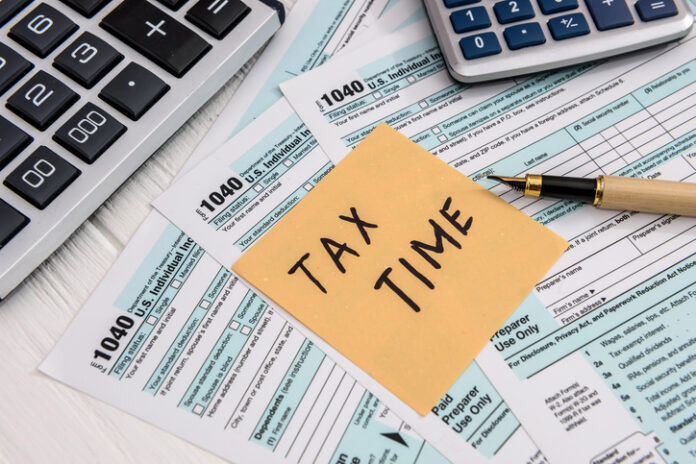Congress must ensure taxpayers don’t face a 2025 hike due to expiring provisions of the 2017 Tax Cuts and Jobs Act. (Opinion)
by Andrew Wilford
Congress passed another bill to fund the federal government this week but continues to bounce from short-term crisis to short-term crisis without actually addressing the roots of the budget issues plaguing taxpayers everywhere.
Legislators’ persistent, year-after-year failure to fulfill its most basic obligation to pass appropriations bills in a timely manner drives home the need not to wait until the eleventh hour to figure out how to ensure taxpayers across the country don’t face a massive, economically damaging tax increase after 2025.
In order to make the budget math work, Congress set many of the tax cuts included in the 2017 Tax Cuts and Jobs Act (TCJA) to expire in 2025. The architects of the TCJA always intended these cuts to be extended before they expired, but as 2025 draws closer, taxpayers are increasingly at risk of a tax hike few want.
Many of these impending tax increases are on the individual side. The TCJA included a wholesale reform of how the individual income tax applies to taxpayers, including replacing personal exemptions with a doubled standard deduction, reducing tax rates and modification of itemized deductions. Broadly speaking, these reforms reduced the complexity of most taxpayers’ tax returns while also ensuring the vast majority of taxpayers received a tax cut.
Other individual income tax changes benefited specific, yet broad groups of taxpayers. The Child Tax Credit was expanded, and the eligibility thresholds were increased. The exemption amounts for the onerous and complex Alternative Minimum Tax, as well as the estate tax, were increased. In order to ensure smaller pass-through businesses were not put at a competitive disadvantage with corporations in the wake of the TCJA’s corporate tax cut, a new 20 percent deduction was created for pass-through business income.
Of course, these tax cuts have a revenue impact. The Tax Foundation recently estimated making these expiring individual tax cuts permanent would reduce federal revenues by $2.57 trillion over the next decade — no small amount of revenue loss, though nowhere near the $20.3 trillion deficit the federal government is already set to run over that period. Nevertheless, Congress should prioritize ensuring these revenue losses are offset by spending reductions elsewhere.
Even so, it wasn’t only individual income taxes that were set to expire early under the TCJA. Somewhat wonky, but crucially important elements of the TCJA set to expire in 2025 would have a massively negative impact should they be allowed to die a quiet death.
Full expensing, for example, allows businesses to fully deduct the value of capital investments in the year they are made rather than amortizing them over a complex depreciation schedule that can span decades. Not only is full expensing far simpler, it also makes investment more valuable to businesses, allowing them to receive the full benefit of the deduction immediately.
What really makes full expensing a no-brainer, however, is businesses can only benefit from the deduction when they invest in the economy. Corporate investment is the key to wage increases, as it makes employees more valuable to their employers, and is an important behavior to incentivize.
According to the Tax Foundation, making all these tax cuts permanent would create around 829,000 jobs compared to allowing these cuts to expire, as well as increasing taxpayers’ after-tax income by 3.4 percent. Of course, failing to extend these tax provisions would cut the other way, sucker-punching taxpayers already struggling with inflation right in the wallet.
Addressing the out-of-control debt is also an important priority, and making tax cuts permanent shouldn’t be deficit-financed. But taxpayers can have fiscal responsibility and control over more of their own money at the same time if legislators are willing to rein in overspending.
Andrew Wilford is a senior policy analyst with the National Taxpayers Union Foundation, a nonprofit dedicated to tax and fiscal policy research and education at all levels of government.

Originally published by The Daily Caller. Republished with permission. Content created by The Daily Caller News Foundation is available without charge to any eligible news publisher that can provide a large audience. For licensing opportunities of our original content, please contact licensing@dailycallernewsfoundation.org.
For more great content from Budget & Tax News.











